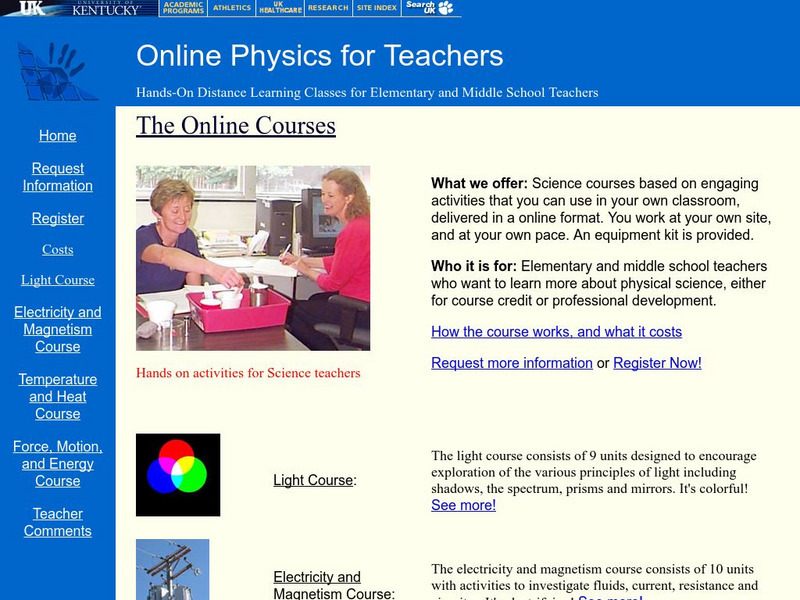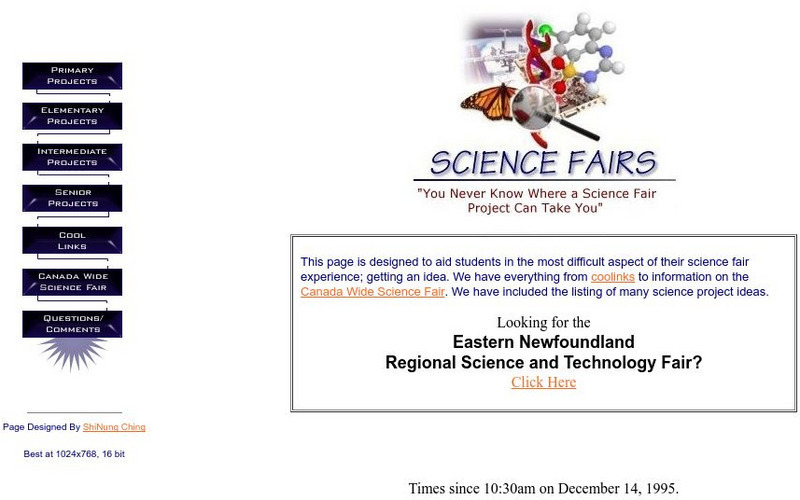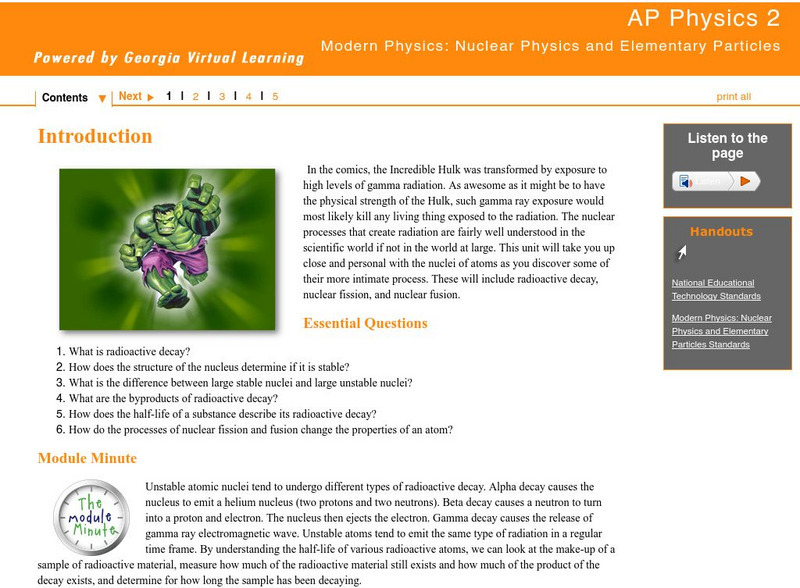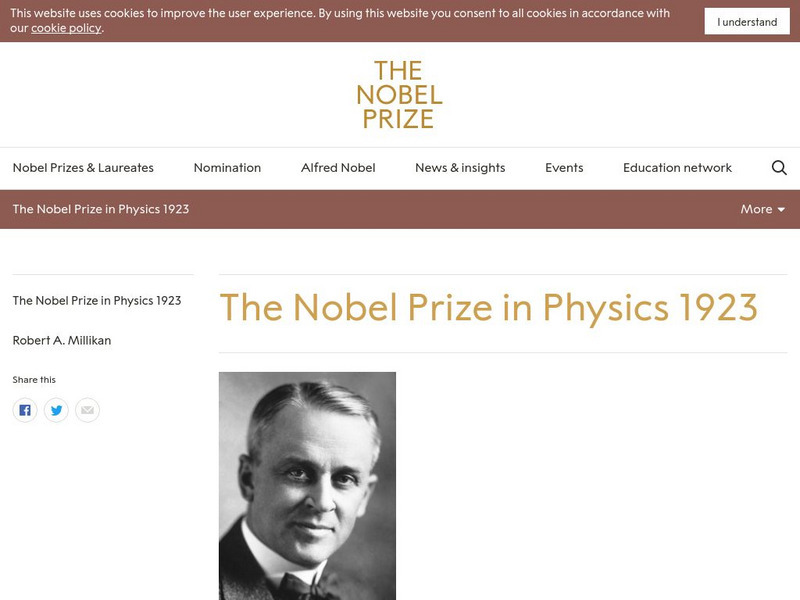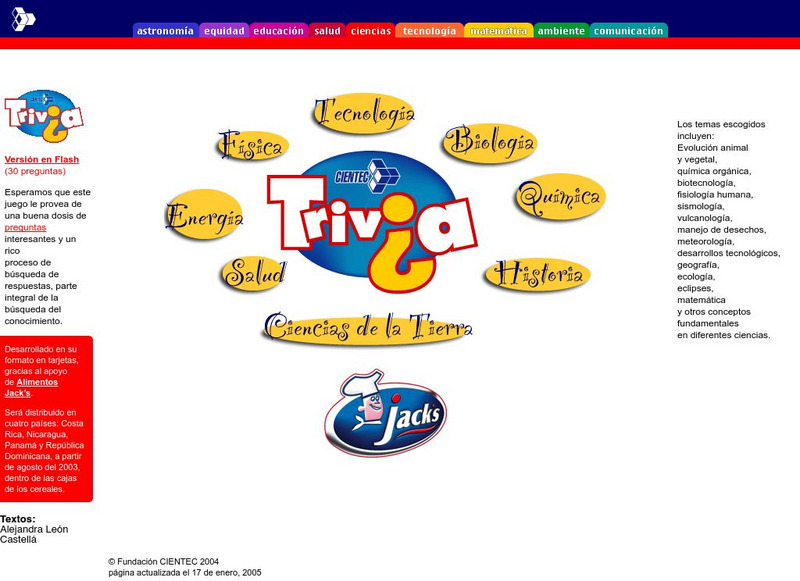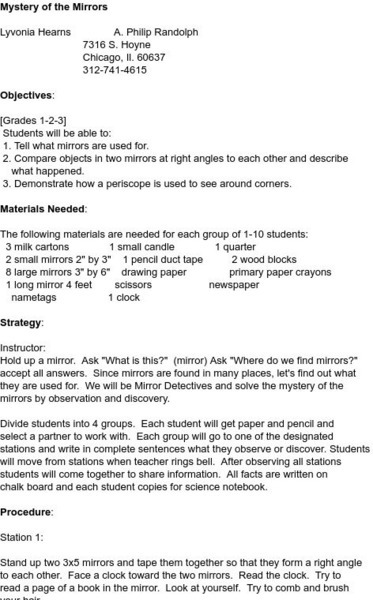Hi, what do you want to do?
Curated OER
Teaching the Five Themes of Geography Through Picture Books
Read the story Make Way for Ducklings and introduce little ones to the five themes of geography. Reread the story, while displaying transparencies to reinforce the five themes. In groups, learners view pictures and identify the themes on...
Curated OER
Making Connections, Linking Population and the Environment
Students find out that all habitats have a carrying capacity. They explore how the world's human population has grown markedly in the 20th century, and that humans impact environmental health. Students investigate that people can and...
Curated OER
Where Do I Fit?
Fourth graders complete activities to learn about career options and the role jobs have in community. In this career instructional activity, 4th graders complete a career exploration worksheet and study the local community jobs...
Curated OER
Getting a Job! Getting a Job: The Resume Interview
Eleventh graders discover resume strategies. In this career goals instructional activity, 11th graders review sample resumes, discuss their attributes, and write their own resumes that effectively introduce them to prospective employers.
Curated OER
Downhill Discoveries
Students are involved in hands-on activities to determine how course conditions affect bobsled, luge, and downhill ski races.
Curated OER
Geological Development of Indiana and the Movement of Peoples Across the State
Fourth graders examine the geological development of the state of Indiana. Using the internet, they interact with the United States Geological Survey. They identify earthquake zones and energy resources in the state. They work...
Curated OER
Geological Development of Indiana and the Movement of Peoples Across the State
Learners are introduced to the geological development of the state of Indiana. Using the internet, they visit the U.S. Geological Survey and locate the earthquake zones in the state. In groups, they locate and identify the energy...
Curated OER
Locating the Salt Front
Students use Hudson River salinity data to create a line
graph that shows the location of the salt front, and use math
skills to explore how this location varies over time. They use the graph to estimate the location of the salt front...
Curated OER
How Does Your Garden Grow?
Students create a design for a school garden. In this garden design lesson, students analyze what plants grow best in their school's climate and work in teams to design a garden. Students measure the existing space, determine the...
Nobel Media AB
The Nobel Prize: The Nobel Prize in Physics 1929
This site from The Nobel Foundation tells the scientific work which earned Louis de Broglie the Nobel Prize in Physics. Here, you can read the Presentation Speech in which Professor C.W. Oseen praises Louis de Broglie's work and de...
Other
Bscs: Bscs Science Teaching Video Library
Elementary teachers have an urgent need for high-quality science classroom videos. To respond as rapidly as possible, BSCS Science Learning has made some of our best K-12 videos available for free streaming. In this collection, you'll...
University of Kentucky
University of Kentucky: Online Physics for Teachers
A set of four online courses in Physics for elementary and middle school teachers. Each course targets a different topic area - light, electricity & magnetism, temperature & heat, and force, motion, & energy.
Other
Cdli: Science Fairs Homepage
At this site from the Center for Distance Learning and Innovation there's a monstrous listing of possible science fair projects. You can choose from primary (grades 1-4), elementary (grades 4-6), intermediate (grades 7-9), or senior...
Other
Elementary Science Program: Astronomy, Gr. 5 8
"Astronomy is the science that studies the Earth, the Moon and other objects in space. It has helped us discover our place in the physical universe. It is still making discoveries." This landing page gives options for students and...
Other
Science4 Us: Changes in Matter
Through an instructional video, games, and activities, students explore three types of change matter makes: physical change, in which only the shape of the matter changes; physical phase change in which matter changes to a different form...
Georgia Department of Education
Ga Virtual Learning: Nuclear Physics and Elementary Particles
This interactive unit will take students up close and personal with the nuclei of atoms as they discover some of their more intimate process. These will include radioactive decay, nuclear fission, and nuclear fusion.
Nobel Media AB
The Nobel Prize: The Nobel Prize in Physics 1923: Robert Andrews Millikan
This Nobel website on the life and scientific work of Robert A. Millikan includes a biography, images, and internet resources for further reading and research. Also included are the 1923 "Presentation Speech" which praised Millikan's...
Ducksters
Ducksters: Physics for Kids: Elementary Particles Quarks, Bosons, Leptons
Kids learn about elementary particles in the science of physics such as quarks, bosons, fermions, leptons, photons, and gluons.
Fundación Cientec
Trivia: 30 Preguntas! Ciencias
Thirty questions to test your knowledge of upper elementary / middle level science (in Spanish). Covers energy, health, physics, technology, biology, chemistry, history of science, and earth sciences. You can choose between a Flash or...
Science and Mathematics Initiative for Learning Enhancement (SMILE)
Smile: Sound (Primary)
This site provides two activities that can be used in the primary elementary classroom. The purpose is to "demonstrate different ways to produce sound."
Science and Mathematics Initiative for Learning Enhancement (SMILE)
Smile: Potential Energy: How Is It Related to Kinetic Energy
After creating three different ramps with various heights, students will release toy cars from the tops of each ramp. Based on the elementary age level, students will collect data and analyze it.
Science and Mathematics Initiative for Learning Enhancement (SMILE)
Smile: Mystery of the Mirrors (1 3)
This lesson plan from the Illinois Institute of Technology incorporates observation with hands on activity through various stations.
Science and Mathematics Initiative for Learning Enhancement (SMILE)
Smile: Electromagnets (Grades 3 and 4)
This lesson helps students to understand the difference between magenets and electromagnets. They will also create an electromagnet.
Science and Mathematics Initiative for Learning Enhancement (SMILE)
Smile: Sound
This site provides a lesson plan designed for primary learners over a three week period. Students learn concepts of vibration, communication,and pitch.
















